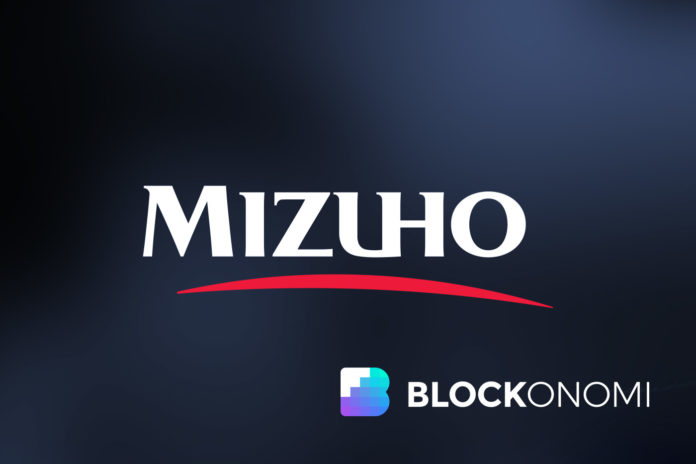
Some of the world’s largest institutions are launching crypto assets. But, by and large, few of these ventures harness blockchain, let alone decentralized technologies. Case in point, JP Morgan’s digital asset, the fittingly-named JPM Coin, will not exemplify the raison d’etre of permissionless networks. Per previous reports from Blockonomi, the Wall Street-backed, U.S. dollar-pegged asset will be based on a private version of Ethereum known as Quorum.
Social media giant Facebook is purportedly looking to launch its own cryptocurrency too. But more likely than not, the venture will be centralized beyond compare.
Another institution joined in on the paradox that is centralized cryptocurrencies on Wednesday, as a company representative told Quartz that their upcoming offering will not make use of blockchain in any way, shape, or form.
Japanese Institution To Launch ‘Crypto’
In late-2017, as BTC began to rally tremendously, CNBC reported that Japanese financial institution Mizuho was considering launching the so-called “J-Coin” just in time for Tokyo’s 2020 Olympics. Although details were scant following that report, leading some to claim that Mizuho’s foray was just hearsay, the Nikkei Asian Review corroborated the report in late-2018. Per the outlet, the finance giant was aiming to introduce a consumer-centric cryptocurrency by March, as it aims to promote a cashless economy.
But according to Quartz, who obtained a quote from a Mizuho spokesperson, J-Coin will not be like Bitcoin in many senses. They explain that while the Yen-pegged token is described as a “digital currency platform,” it will not make use of blockchain or decentralized ledgers to process and/or store transactional data.
Instead of being a medium for transactions to be disintermediated, the institution’s J-Coin will be Japan’s attempt to spark the adoption of digital transactions. Quartz argues that Japan has been slow to “make the digital leap,” as characteristics of Japanese society (negative interest rates, low crime, etc.) promote the use of cash, rather than payments made via mobile devices. But, with the arrival of the stablecoin, Japan may move just one step closer to 40% digital payment penetration, rather than the current 20%.
Why Blockchain (And Decentralization) Is Needed
Although Mizuho’s offering may push the general public to open up their arms to digital currencies, Bitcoin included, the fact that blockchain (and decentralized technologies by extension) aren’t harnessed may irk this community. Here’s why, as explained by Su Zhu and Hasu, the chief investment officer of Three Arrows Capital and an independent crypto researcher respectively.
Cash (an inherently a peer-to-peer, permissionless, and private medium of exchange), not money, has existed for hundreds of years, if not a handful of millennia. Yet, with the rise of the digital payment services in mind, Hasu and Zhu argue that the hegemony that forms of cash has established itself could be coming to an end. The duo writes that PayPal, Venmo, WeChat Pay, and payment ecosystem of similar caliber and nature “remove every need for cash,” as they’re pushed as faster, cheaper, and more efficient forms of transferring value.
The databases tracking transactions made with online money are already ripe for picking for the powers that be, allowing the centralized establishment to watch over society with a Sauron-esque eye. And with the seemingly relentless rise of these services and ecosystems, cash could become a thing of the past in the near future. They explain:
“The use of cash in larger denominations has become so stigmatized in the US and Europe that withdrawing or carrying above a certain amount requires explicit government permission […] We will argue that the elimination of cash, even if most payments are already digital, will make society more vulnerable to surveillance, financial control, and authoritarianism.”
While the absence of private, permissionless cash wouldn’t necessarily be a problem if humans were non-fallible, such a sterile utopia can only exist in the minds of sci-fi thinkers. Thus, Hasu and Zhu noted that while governments would claim that going cashless protects citizens — censorship, fund confiscation, and the like could easily become the societal norm.
But that’s where Bitcoin shows its face. The two authors explain that the cryptocurrency could become a bonafide hedge against a cashless society. It was noted that while Bitcoin evidently has a use case as a deflationary asset, much like gold, it’s best used as a new breed of money — digital cash, “that combines the benefits of physical cash with the benefits of digital payments.”
The post Missed The Memo: Mizuho’s J-Coin Doesn’t Even Involve Blockchain appeared first on Blockonomi.

Blockonomi.com is author of this content, TheBitcoinNews.com is is not responsible for the content of external sites.
Our Social Networks: Facebook Instagram Pinterest Reddit Telegram Twitter Youtube










